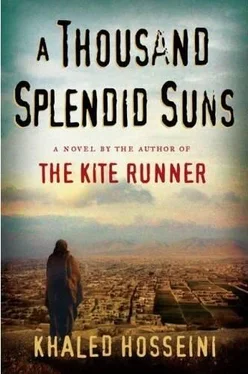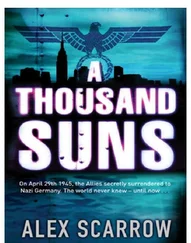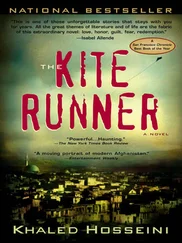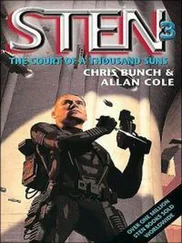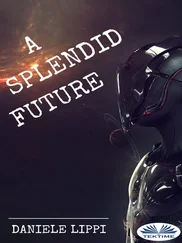"Tell me the rest, Mammy. Tell me so I know."
And Laila did.
"Your father is a good man. He is the best man I've ever known."
"What if he leaves?" Aziza said
"He will never leave. Look at me, Aziza. Your father will never hurt you, and he will never leave."
The relief on Aziza's face broke Laila's heart.
TARIQ HAS BOUGHT Zalmai a rocking horse, built him a wagon. From a prison inmate, he learned to make paper animals, and so he has folded, cut, and tucked countless sheets of paper into lions and kangaroos for Zalmai, into horses and brightly plumed birds. But these overtures are dismissed by Zalmai unceremoniously, sometimes venomously.
"You're a donkey!" he cries. "I don't want your toys!"
"Zalmai!" Laila gasps.
"It's all right," Tariq says. "Laila, it's all right. Let him."
"You're not my Baba jan! My real Baba jan is away on a trip, and when he gets back he's going to beat you up! And you won't be able to run away, because he has two legs and you only have one!"
At night, Laila holds Zalmai against her chest and recites Babaloo prayers with him. When he asks, she tells him the lie again, tells him his Baba jan has gone away and she doesn't know when he would come back. She abhors this task, abhors herself for lying like this to a child.
Laila knows that this shameful lie will have to be told again and again. It will have to because Zalmai will ask, hopping down from a swing, waking from an afternoon nap, and, later, when he's old enough to tie his own shoes, to walk to school by himself, the lie will have to be delivered again.
At some point, Laila knows, the questions will dry up. Slowly, Zalmai will cease wondering why his father has abandoned him. He will not spot his father any longer at traffic lights, in stooping old men shuffling down the street or sipping tea in open-fronted samovar houses. And one day it will hit him, walking along some meandering river, or gazing out at an untracked snowfield, that his father's disappearance is no longer an open, raw wound. That it has become something else altogether, something more soft-edged and indolent. Like a lore. Something to be revered, mystified by.
Laila is happy here in Murree. But it is not an easy happiness. It is not a happiness without cost.
ON HIS DAYS OFF, Tariq takes Laila and the children to the Mall, along which are shops that sell trinkets and next to which is an Anglican church built in the mid-nineteenth century. Tariq buys them spicy chapli kebabs from street vendors. They stroll amid the crowds of locals, the Europeans and their cellular phones and digital cameras, the Punjabis who come here to escape the heat of the plains.
Occasionally, they board a bus to Kashmir Point. From there, Tariq shows them the valley of the Jhelum River, the pine-carpeted slopes, and the lush, densely wooded hills, where he says monkeys can still be spotted hopping from branch to branch. They go to the maple-clad Nathia Gali too, some thirty kilometers from Murree, where Tariq holds Laila's hand as they walk the tree-shaded road to the Governor's House. They stop by the old British cemetery, or take a taxi up a mountain peak for a view of the verdant, fog-shrouded valley below.
Sometimes on these outings, when they pass by a store window, Laila catches their reflections in it. Man, wife, daughter, son. To strangers, she knows, they must appear like the most ordinary of families, free of secrets, lies, and regrets.
AZIZA HAS NIGHTMARES from which she wakes up shrieking. Laila has to lie beside her on the cot, dry her cheeks with her sleeve, soothe her back to sleep.
Laila has her own dreams. In them, she's always back at the house in Kabul, walking the hall, climbing the stairs.
She is alone, but behind the doors she hears the rhythmic hiss of an iron, bedsheets snapped, then folded. Sometimes she hears a woman's low-pitched humming of an old Herati song. But when she walks in, the room is empty. There is no one there.
The dreams leave Laila shaken. She wakes from them coated in sweat, her eyes prickling with tears. It is devastating. Every time, it is devastating.
One Sunday that September, Laila is putting Zalmai, who has a cold, down for a nap when Tariq bursts into their bungalow.
"Did you hear?" he says, panting a little. "They killed him. Ahmad Shah Massoud. He's dead."
"What?"
From the doorway, Tariq tells her what he knows.
"They say he gave an interview to a pair of journalists who claimed they were Belgians originally from Morocco. As they're talking, a bomb hidden in the video camera goes off. Kills Massoud and one of the journalists. They shoot the other one as he tries to run. They're saying now the journalists were probably Al-Qaeda men."
Laila remembers the poster of Ahmad Shah Massoud that Mammy had nailed to the wall of her bedroom. Massoud leaning forward, one eyebrow cocked, his face furrowed in concentration, as though he was respectfully listening to someone. Laila remembers how grateful Mammy was that Massoud had said a graveside prayer at her sons' burial, how she told everyone about it. Even after war broke out between his faction and the others, Mammy had refused to blame him. He's a good man, she used to say.
He wants peace. He wants to rebuild Afghanistan. But they won't let him. They just won't let him. For Mammy, even in the end, even after everything went so terribly wrong and Kabul lay in ruins, Massoud was still the Lion of Panjshir.
Laila is not as forgiving. Massoud's violent end brings her no joy, but she remembers too well the neighborhoods razed under his watch, the bodies dragged from the rubble, the hands and feet of children discovered on rooftops or the high branch of some tree days after their funeral. She remembers too clearly the look on Mammy's own face moments before the rocket slammed in and, much as she has tried to forget, Babi's headless torso landing nearby, the bridge tower printed on his T-shirt poking through thick fog and blood.
"There is going to be a funeral," Tariq is saying. "I'm sure of it. Probably in Rawalpindi. It'll be huge."
Zalmai, who was almost asleep, is sitting up now, rubbing his eyes with balled fists.
Two days later, they are cleaning a room when they hear a commotion. Tariq drops the mop and hurries out. Laila tails him.
The noise is coming from the hotel lobby. There is a lounge area to the right of the reception desk, with several chairs and two couches upholstered in beige suede. In the corner, facing the couches, is a television, and Sayeed, the concierge, and several guests are gathered in front of.
Laila and Tariq work their way in.
The TV is tuned to BBC. On the screen is a building, a tower, black smoke billowing from its top floors. Tariq says something to Sayeed and Sayeed is in midreply when a plane appears from the corner of the screen. It crashes into the adjacent tower, exploding into a fireball that dwarfs any ball of fire that Laila has ever seen. A collective yelp rises from everyone in the lobby.
In less than two hours, both towers have collapsed.
Soon all the TV stations are talking about Afghanistan and the Taliban and Osama bin Laden.
* * *
"DID YOU HEAR what the Taliban said?" Tariq asks. "About bin Laden?"
Aziza is sitting across from him on the bed, considering the board. Tariq has taught her to play chess. She is frowning and tapping her lower lip now, mimicking the body language her father assumes when he's deciding on a move.
Zalmai's cold is a little better. He is asleep, and Laila is rubbing Vicks on his chest.
"I heard," she says.
The Taliban have announced that they won't relinquish bin Laden because he is a mehman, a guest, who has found sanctuary in Afghanistan and it is against the Pashtunwali code of ethics to turn over a guest. Tariq chuckles bitterly, and Laila hears in his chuckle that he is revolted by this distortion of an honorable Pashtun custom, this misrepresentation of his people's ways.
Читать дальше
